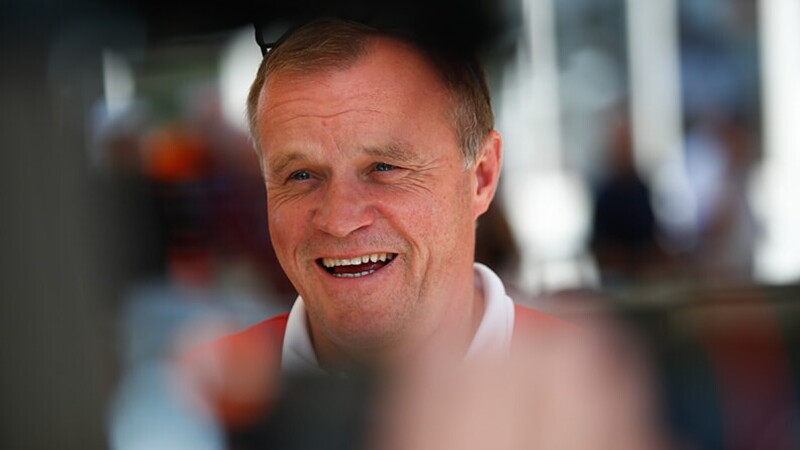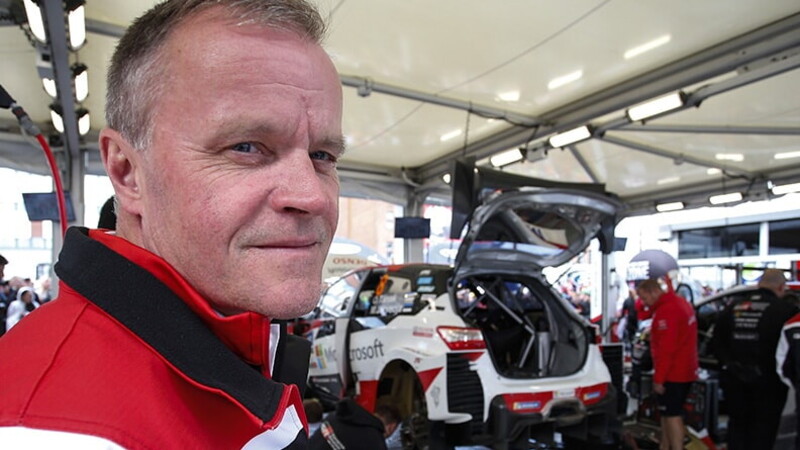Makinen, Finns can only get better

From ploughing fields to ploughing stages
The town of Jyvaskyla in central Finland is at the centre of the universe when it comes to rallying. The surrounding area is where Rally Finland, the fastest round of the World Rally Championship takes place. It's also where Tommi Makinen was born and grew up – just like Juha Kankkunen, a fellow four-time champion and Makinen's predecessor as the WRC's most prominent ‘Flying Finn'.
Here, drivers often start driving at a young age, honing their skills on the sort of fast gravel tracks that make up Rally Finland. In Makinen's case, he didn't start out in a rally car but in a tractor on his father's farm in Puuppola, and he went on to be Finland's national ploughing champion on two occasions.
Makinen was 21 when he started his first rally, but he soon caught the attention of Kankkunen and his manager Timo Jouhki. He also gained an experienced co-driver in Seppo Harjanne, who had guided Timo Salonen to the 1985 title. But Makinen had to wait for his real breakthrough at the top of world rallying. Hannu Mikkola, another Finnish champion, helped him to get a drive with Mazda, and a factory contract with Nissan followed but came to nothing.

The big break
His big opportunity came when Ford asked him to drive one of its Escort RS Cosworths on his home round of the WRC in 1994, at the age of 30. Having never even finished on the podium before, Makinen took on and beat the seasoned regulars. His talent couldn't be ignored any longer, although the full-time contact that followed came not from Ford but from Mitsubishi, which was ramping up its own rallying programme.
Read more: Under the skin of the blue oval in WRC
What followed was an incredibly fruitful relationship for both parties, as each helped the other to become a champion. No driver and car in the history of rallying are as synonymous with each other as Makinen and the Mitsubishi Lancer in its numerous Evolutions. Makinen's exploits on the stages drove sales of the famed Evo road car, and there was even a special edition released in his name.
At the time, the success of the partnership was unprecedented in the WRC, as Makinen racked up four consecutive world championships between 1996 and 1999. No driver had ever won more than two titles on the bounce before, and Makinen's fourth crown brought him level with his mentor Kankkunen for the total number of championships won.
What made Makinen's titles especially impressive was the fact that they came in one of the most competitive periods in rallying history, and his rivalries with Colin McRae and Carlos Sainz provided plenty of stand-out moments. Like many Finns before him, Makinen had a similarly fast and committed style to McRae, and their battles often ended with one or both drivers going off the road. But although he wasn't as consistent as Sainz, Makinen could find a way of coming out on top over the course of a season – and he was remarkably versatile, on every surface.

Learning on the job
He learned on his first visit to the gruelling Safari Rally in 1996 that speed alone wasn't always the key to victory, which enabled him to emulate Kankkunen once again, as the only other driver in the modern era to win the event at the first attempt. Another of Makinen's strengths was his speed on asphalt – a major weakness for Kankkunen and many other Finns before him. He could win just about anywhere.
As in Formula 1, championships can be won by having the best car. Perhaps the greater proof of Makinen's talent than his four straight world titles – and arguably just as notable an achievement – were his four consecutive wins on the most famous event of all, the Monte Carlo Rally, from 1999 onwards.
In 2000, the Monte would be Makinen's only win that season as he conceded his crown to Marcus Gronholm, another former farmer from Finland who was equipped with the state-of-the-art Peugeot 206 WRC. But in 2001, Makinen fought back and led much of the championship even as Mitsubishi persevered with the ageing Group A-specification Lancer, four years after rivals had introduced more sophisticated World Rally Cars. Mitsubishi's struggles with its own Lancer WRC that debuted towards the end of the season ultimately prevented Makinen's fifth title and led him to switch to its big Japanese rival Subaru for 2002.
Victory on his Subaru debut gave Makinen a then-record 24th WRC win, but it would also be his last. It was a changing of the guard – his win only came after French hotshot Sebastien Loeb was denied a maiden victory by a penalty for an illegal tyre change. Loeb would later surpass Makinen's records on his way to nine world titles in a row, which was followed by six in a row for Sebastien Ogier.

Being the boss
Makinen played a big hand in finally ending that run of French domination just last year. After retiring at the end of 2003, he moved into the background, establishing a company in Puuppola that prepared production-based Subaru rally cars. Over a decade later, he landed a contract to manage Toyota's return to the WRC, developing the new Yaris WRC and putting it through its paces by driving it himself on his local roads. The car won on just its second event in 2017, delivered the manufacturers' title in 2018, and propelled Ott Tanak to the drivers' title in 2019.
Running his own team, Makinen has been inspired by his former Mitsubishi boss Andrew Cowan, who died last year. But he also knows what it takes to be a champion driver, which might explain the bold step he took of assembling an entirely-new driver line-up for 2020.
He was able to secure the signature of Ogier and partnered him with up-and-coming Welsh driver Elfyn Evans and teenage talent Kalle Rovanpera. Ogier and Evans both took the Yaris to victory before the 2020 season was interrupted by global events. But it's Rovanpera, himself brought up in Puuppola, who looks set to be the next driver from rallying's heartland to take the sport by storm – under Makinen's careful guidance.




